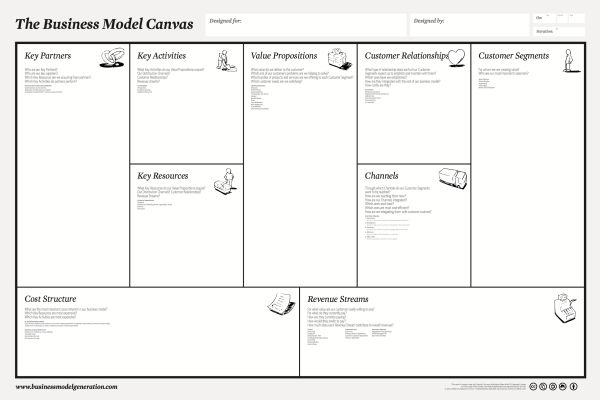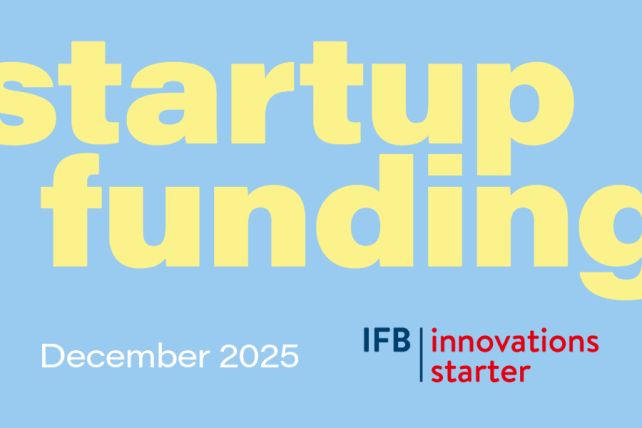How to found a successful startup
Nowadays, economic and social progress seems almost inconceivable without startups and their founders, who want to turn their dreams into reality with courage and innovation. For the project to succeed, there is a lot to consider when founding a startup. Here is an overview of the most important steps on the way to your own company and the institutions in Hamburg that can support you.

In the beginning is the idea
Many ideas for company foundings arise when people in their private or professional environment identify a problem for which there is not yet an appropriate solution. If these people also have a certain entrepreneurial mentality or a long-held desire to become self-employed, these are the best prerequisites for founding a startup.
Are you thinking about founding a company yourself? Then you should put your problem-solving approach to the test. For a startup to be successful, it must be open to change. Rarely does the original idea stick, it evolves in an ongoing process towards a real-world solution. Startups should be highly adaptable, flexible and open to constructive criticism. Early exchange with potential customers as well as with other founders helps to avoid mistakes. Typical pitfalls are, for example, overestimating the actual need, taking on too much at once or, on the contrary, spending too much time on details.
From the beginning, you should think about the business model. This also applies to startups that focus on the social aspect, because they also depend on revenue to achieve their goals. Basically, a distinction is made between business with end customers (B2C) and business with companies (B2B), although there can also be mixed forms. Many founders who are driven by a personal experience tend towards B2C and easily overestimate the willingness of potential customers to pay, especially if they were initially attracted by free offers, as often happens, for example, with the introduction of apps.
B2B startups are often founded by people who have been working in a certain industry for a while and have noticed deficits there, for example in digitalisation. So there is a demonstrable need here, but industry-specific solutions with a narrow focus may have less growth potential than ideas suitable for the masses. On the other hand, they reach a more stable clientele and guarantee better planning. It is not uncommon for startups to change course from B2C to B2B during their development.

A good tool to get an overview of your business model is the business model canvas. It is available as a digital graphic or as a poster for the wall, where you can enter your ideas in fields for nine key criteria:
Key partners
Key activities
Key resources
Value propositions
Customer relationships
Distribution Channels
Customer segments
Cost structure
Revenue streams
The Business Model Canvas is not a panacea, but it does provide a proven guide.
No startup can survive without an innovative idea and a plausible business model. However, investors often say that the team composition is almost more important to them. Individual founders therefore have a harder time from the start, but can convince with personality and commitment. Of course, this also applies to teams, although here there are more easily objectifiable factors.
A well-assembled team convinces with its versatility. Three programmers together may be unbeatable when it comes to software, but they lack competence in important areas such as business administration or marketing. A strong team combines technical, methodological, social and individual competence and this composition can very often be found in mixed-gender teams. A sales talent who can present the product convincingly is also indispensable. Diversity is therefore important in many respects. But with regard to the allocation of your resources, it is advisable to outsource administrative tasks and benefit from special conditions for startups, for example with tax consultancies.

Clarify the most important legal questions in advance
This also applies to law firms. In the rarest cases, founding teams have comprehensive legal expertise, and this is where many stumbling blocks lurk. You have to make decisions that can often only have an impact years later, for example, regarding the legal form of your startup. An important criterion here is the limitation of liability, which regulates whether you are liable with all your personal assets or only with the assets contributed to the company. A founding partnership can be like a marriage. Intended for eternity, it often comes to a premature separation. It therefore makes sense to contractually regulate in good time who will receive which shares in the company and under what conditions.
The importance of the company name should not be underestimated. On the one hand, of course, because you want to be remembered by as many people as possible. On the other hand, however, you can get into trouble if the name has already been taken. A change of name can be expensive, if only because of the re-branding and the change of logo in all your communication. It also makes it much more difficult for you to be found again, at least temporarily. Products also enjoy property rights. So find out early on whether you might be infringing existing patent protection and apply for patents yourself, ideally internationally. There are even subsidies and grants for this.

How to find the right financing and funding
Many founders first try to finance their startup completely out of their own pocket. This approach, called bootstrapping, has the advantage that you can act completely independently in your decisions. However, very limited capital can slow down growth or even lead to early insolvency. In the beginning, startups are usually not yet able to close larger financing rounds, but they can certainly win over business angels who support them with smaller amounts and, more importantly, know-how.
To convince supporters, you should always be able to sum up your business model in a few sentences. This short presentation is called a elevator pitch, because it should be completed in a time span that corresponds to a ride in a lift. You can practise this with friends who have limited knowledge of your subject. For more detailed presentations, you should create a pitch deck that presents all the advantages of your startup clearly and concisely.
You will also need such a pitch deck, for example, if you are applying for a funding programme. There are a number of such programmes in Hamburg, most of which focus on a specific industry, such as the AI.STARTUP.HUB or the Next Commerce Accelerator (NCA). In some programmes you receive financial support, in others at least intensive coaching, in some you have to give up shares in the company, in some not. A distinction is made, for example, between incubators, which are developing ideas as yet, and accelerators, which are intended to advance growth, although the transitions are fluid. In Hamburg, IFB Innovationsstarter GmbH plays a leading role in the promotion of startups, offering programmes for various business phases from the public purse. InnoFounder is designed for the startup phase.
You can find an overview of the funding programmes in Hamburg here.
The first place to go for comprehensive advice on all the topics mentioned in this article and more is the Startup-Unit of Hamburg Invest. You can request a personal appointment here at any time by e-mail or via Calendy. You can also get practical help from the following institutions:
The founding centre of the Hamburg Chamber of Commerce advises on all startup matters, such as registering a business, the business concept and the business plan.
Startup Port is the right contact for university-related startups. This is an association of Hamburg's universities that provides feedback on the founding idea and supports, among other things, the application for an EXIST scholarship.
The Hamburg entrepreneur initiative hei. offers individual talks and numerous seminars on startup-related topics.
At the Wirtschaftsenioren, experienced entrepreneurs and managers share the expertise they have acquired over decades.
You can find a lot more information on the topic of founding here on our website.















